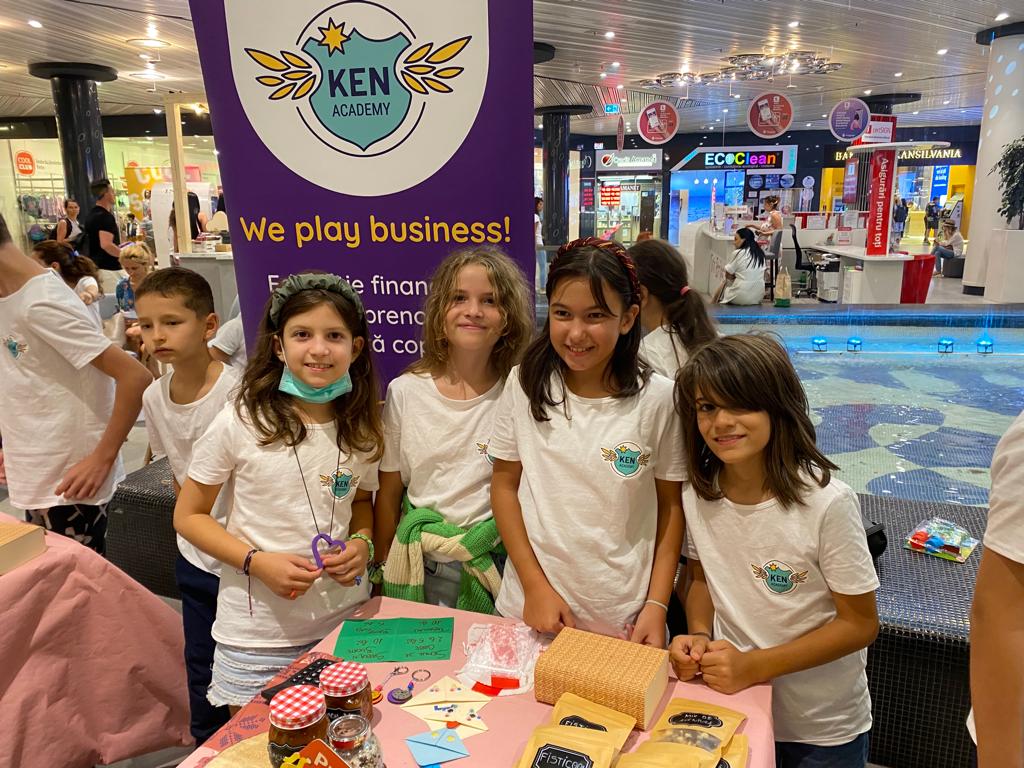
Everyday activities to teach kids financial literacy
At some point in our adult lives, we've all experienced the consequences of poor money management, perhaps when we fell behind on our rent or credit card payments. Such moments made us think more about the importance of financial education.
Research by renowned Cambridge University professors shows that many financial habits begin to form by the age of 7. If good habits aren't formed early, it becomes increasingly difficult for little ones to learn about financial literacy and the importance of money.
In the lines below we present some basic measures about financial education that can be included in children's daily activities:
I can work for pocket money
Regardless of their age, one of the most important financial lessons for children is that money is a limited resource. So, they have to work for their money and then they will learn to use it more carefully and responsibly.
Many parents are in the habit of giving their little ones a weekly allowance, which in itself can help teach budgeting skills. Even better would be to get them to earn that money by doing chores around the house. Making a mental connection between income and personal effort is something that will benefit them immensely when they grow up and become fully independent.
Talk to them about the importance of contributing to the home shopping
Almost every parent knows what it's like to take their kids to the store and be inundated with requests for various toys or video games. Perhaps it shouldn't be a surprise. Younger children, especially, do not yet understand that there is a limited amount of money that parents have available each month for extra or non-necessary purchases.
One way to get them to understand this is to tell them to contribute these non-essential articles. If it's not their birthday or Christmas, they can be told that they have to pay half the cost of a new Lego set or something they want. The child will certainly get a clearer idea of how much things actually cost. They will learn that they need to save the allowance to make bigger purchases and that they need to set priorities, just like their parents do.
Learn financial education through games
Who said learning about finance had to be boring? Even board games can help children learn the importance of saving.
Monopoly is a game that can teach them some pretty important lessons, as participants must choose which properties or buying strategies will bring the highest payoffs and measure risk versus reward with every move they make.
Open a bank account for them
A piggy bank is a useful savings tool for younger children, but when they reach primary school, parents should consider opening a child account at a real bank. It's a good way to instill in them the importance of gradually building up their balance and gives them an introduction to the banking industry.
A more modern approach is to get a debit card for kids. Little ones can earn money through chores or an allowance and then use the cards to shop online or in a store. They will soon realize how quickly their account balance dwindles when they overdo it. Both products emphasize transparency, giving parents the ability to control where their children can use their cards and sending notifications after each purchase.
Talk to them honestly about money
Perhaps the most important thing we can do to foster our child's financial literacy is to be open and honest about our family finances. Parents often fear that too much honesty will only lead to worry, especially if they are going through a job loss or other stressors.
The reality is that somewhere along the way, children will face their own hardships. They will be immensely well equipped to handle them if they know how to react. That doesn't mean we have to share their bank statements, but it might help to talk to them about the need to stick to a budget and cut back on certain non-essentials during times of crisis. Children tend to be much more perceptive than we think. If they see us making prudent decisions, then they are likely to imitate these behaviors later in life.
When do children start learning financial habits?
Sooner than we might think. Researchers David Whitebread and Sue Bingham from the University of Cambridge found through their studies that many of their money habits are established by the age of 7. That means parents need to start teaching them concepts like saving early.
Good money habits are not formed out of the blue - they have to be learned, step by step, and with understandable explanations. If parents start when children are still young, they will be better prepared to manage their finances in adulthood, when the stakes are much higher.
Has your child started learning financial literacy?
Tag:money, financial education
